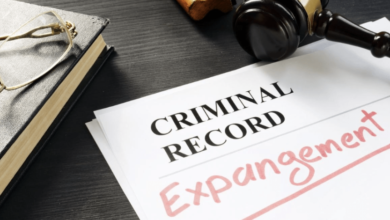Shifting TCPA Enforcement: What to Expect for Consumer Protection and Industry Practices
Regulatory agencies plan to increase enforcement actions against TCPA violations due to rising consumer complaints and the complexity of telemarketing practices. This expanded degree of assessment will bring about organizations being liable to reviews, examinations, and legitimate activities on a more regular basis, inciting them to execute solid consistency structures. This article explores the upcoming shifts in TCPA enforcement, highlighting the main areas requiring businesses to adjust to ensure compliance.
Heightened enforcement measures
It is guessed that administrative offices will expand their implementation activities against TCPA infractions. This involves conducting audits, investigations, and legal actions more frequently. Businesses need to be ready for increased levels of inspection.
Increased consequences for failure to follow rules.
There is a high probability that penalties for TCPA violation will see a substantial rise. This will discourage violations and give businesses a greater reason to prioritize strong compliance measures.
Expanded description of autodialers
The meaning of autodialers could widen to incorporate different advancements like prescient dialers and other mechanized frameworks. Businesses will need to carefully assess their dialing practices.
Increased Consumer Rights
Buyers can anticipate greater privileges given by the TCPA, which will incorporate more unambiguous meanings of assent, improved quit strategies, and upgraded shields against undesirable calls and instant messages.
Enhanced Opt-Out Systems
Organizations should upgrade their quit choices to permit customers to effectively quit getting undesirable messages. This includes regarding don’t call vaults and offering straightforward rules for quitting.
Increased Demands for Consumer Consent
Obtaining and recording legitimate consumer consent will become increasingly essential. Organizations need to ensure that assent is effectively figured out, not entirely clear, and got through an interaction that can be checked.
Increased visibility in telemarketing efforts.
Customers should anticipate greater openness in the methods of telemarketing. This involves more distinct caller identification, revealing the purpose of the reporting nuisance phone calls , and providing details on the use of consumer data.
Enhanced Procedures for Addressing Consumer Complaints
Regulatory agencies are expected to enhance the procedures for consumer complaints, simplifying the process of reporting violations and obtaining prompt help.
Rising Utilization of Technology in Ensuring Compliance
Technology will be essential for ensuring compliance with TCPA regulations. Organizations and administrative offices will begin utilizing refined instruments to screen calls, break down information, and oversee assent.
Increased expenditures for adhering to telemarketing regulations
Businesses will face increased costs in adhering to the TCPA because of the need to invest in technology, training, and legal resources. This could result in higher expenses for customers.
Increased attention on meeting compliance requirements with third-party vendors.
Businesses will be more accountable for the behaviors of their third-party vendors in the future. Regulatory bodies could enforce more stringent rules regarding vendor supervision and adherence to regulations.
Increased Standards for Maintaining Records
Organizations should keep more exhaustive and broad documentation of selling activities, for example, call logs, assent structures, and client interchanges. Strong record-keeping systems and procedures will be necessary for this.
Creation of Guidelines Tailored to specific Industries.
Industry associations could make more point by point TCPA principles custom-made to different enterprises, offering clear and predictable direction for organizations working inside those areas.
Enhanced cooperation with regulatory agencies.
Administrative bodies and industry associations are supposed to cooperate all the more intently to make proficient consistence rules and requirement strategies. This might bring about an administrative climate that is more powerful and advances joint effort.
Increased and more assertive class action lawsuits
With the ascent in customer information on TCPA freedoms, there is expectation for a development in legal claims. It is essential for companies to focus on compliance in order to reduce the chance of expensive legal disputes.
Improved efforts to educate consumers
Administrative organizations and industry gatherings will focus on teaching buyers about their TCPA privileges and ways of shielding against undesirable calls and instant messages.
More rigorous implementation of regulations for pre-recorded messages
There are expected to be tighter regulations on what are robocalls, including stricter consent rules and restrictions on when calls can be made.
Increased dependence on real-time monitoring for compliance.
The importance of real-time monitoring technologies for identifying and stopping TCPA violations will continue to grow. Organizations should cause interests in apparatuses that to have the ability to dissect call information continuously.
Utilizing Predictive Analytics for Compliance Enforcement
Predictive analytics aids businesses in recognizing possible TCPA risks and compliance concerns. By examining call data and customer behavior, businesses can take proactive steps to solve issues.
Utilization of Blockchain for Monitoring Consent
Blockchain innovation can be used to lay out secure and unchangeable records of purchaser endorsement, advancing straightforwardness and responsibility.
Increased requirements for call abandonment rates.
Administrative organizations could authorize more severe call surrender rate limits, which will lead organizations to upgrade call taking care of practices and reduction purchaser disappointment.
Increased focus on ethical marketing principles.
Customers anticipate honest and transparent telemarketing procedures. Organizations should zero in on fair treatment, honest information, and safeguarding customer security.
More stringent regulations for SMS advertising.
Rules overseeing marketing through text messages are expected to become stricter, with increased demands for consent, content, and frequency.
Harsher consequences for individuals who commit repeated offenses.
Companies that have previously violated the TCPA should anticipate facing harsher consequences, such as increased fines and possible limitations on their operations.
Increased emphasis on stopping automated calls
Regulatory agencies and businesses will continue to prioritize tackling illegal robocalls. Advanced technologies and teamwork will be necessary.
In conclusion
With TCPA enforcement increasing, businesses need to improve their compliance strategies to prevent facing heavy penalties and legal consequences. Organizations can effectively explore this troublesome administrative climate by putting resources into state of the art advances, upgrading straightforwardness in selling practices, and keeping nitty gritty records. Also, it will be essential to focus on purchaser assent and security and advance moral showcasing rehearses to lay out trust and make enduring progress. Acclimating to these changing guidelines won’t simply shield organizations from enormous punishments yet additionally energize a more amiable climate for selling purchasers.


